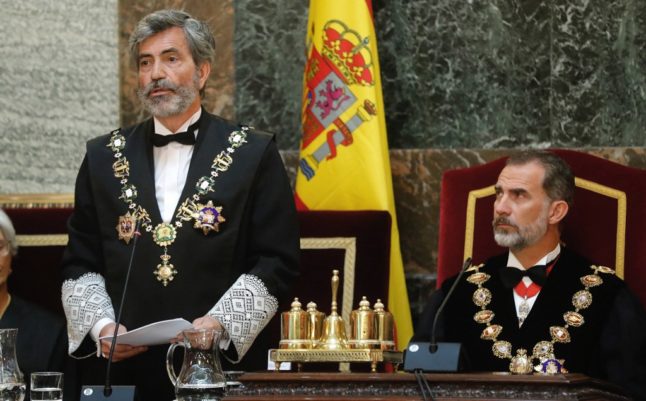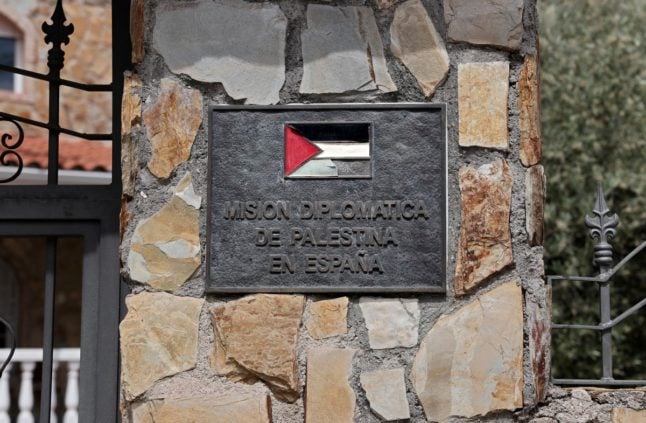The stalemate, which began nearly four years ago, has paralysed appointments to the 20-member General Council of the Judiciary (CGPJ) which is responsible for appointing judges and ensuring the judiciary’s independence.
The Council’s mandate expired in December 2018 and it has since been operating on an interim basis because the ruling Socialists and the right-wing opposition Popular Party (PP) can’t agree on its makeup.
The deadlock has caused increasing problems in the functioning of the Spanish court system.
Carlos Lesmes, who has served as CGPJ head since 2013, formally resigned on Monday in protest at the ongoing situation.
In a statement, the watchdog said Lesmes, who was also head of Spain’s Supreme Court, had informed King Felipe VI “of his desire to immediately resign from his legal duties.”
In a statement announcing his intention to resign, released on Sunday, Lesmes said he had “lost all hope of change” and that staying any longer in his position “would only mean my complicity with a situation that I abhor, and which is unacceptable”.
His decision was taken “out of respect” for the dignity of Spain’s legal institutions and judges “who rightly expected that the (politicians) representing them don’t remain indifferent about a situation that seriously compromises the credibility and functioning of the entire judiciary”.
Lesmes’ resignation had been on the cards for several weeks, as he sought to force a resolution to the political tug-of-war which has seen the two parties blaming each other for the stalemate.
Following his announcement, Prime Minister Pedro Sanchez held three hours of emergency talks on Monday with opposition leader Alberto Núñez Feijóo.
Known as Spain’s legal watchdog, the CGPJ has 20 members — 12 judges or magistrates and eight lawyers or other jurists — who must be elected by a three-fifths majority in Spain’s parliament.
But since its mandate expired in late 2018, Sanchez has been unable to push through appointments for lack of parliamentary support, notably from the PP.
Brussels has repeatedly chastised Spain over the impasse, with EU Justice Commissioner Didier Reynders urging both sides to ensure the CGPJ’s mandate was renewed “without delay” on a visit to Madrid late last month.



 Please whitelist us to continue reading.
Please whitelist us to continue reading.
Member comments